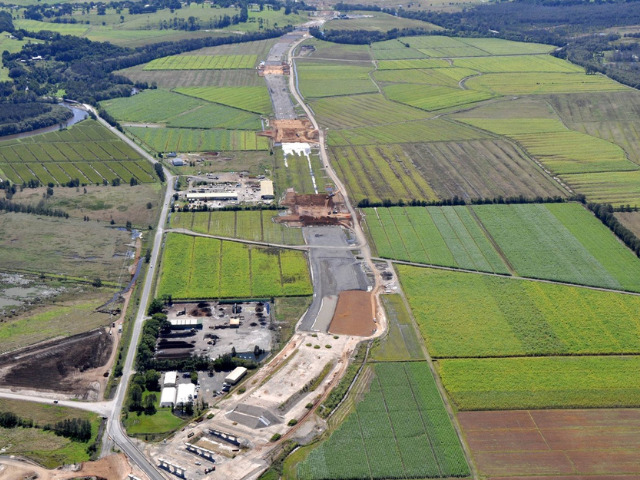
Tetra Tech’s Merrick Jones is a Geotechnical Engineer based in Newcastle, Australia. His capabilities are helping to expand Tetra Tech’s services in assisting clients of major infrastructure projects, particularly in relation to soft soils. He holds a Bachelor of Engineering from the University of Newcastle, Australia.
Merrick’s drive to find science lead solutions has fuelled his ongoing research with his PhD study in the ‘Settlement Prediction of soft soil incorporating Bayesian Back Analysis’. Working closely with senior researchers at the University of Newcastle and with colleagues at Tetra Tech, his studies are looking at improving the prediction of settlement in soft clay. Here Merrick shares his insights into this exciting advance of soft soil studies.
What led you to continue your study and research into this field?
There have always been problems with building major infrastructure on soft soil. Soft clay has a characteristic of taking a very long time to settle, and when it does, the magnitude of the settlement can be quite significant even after construction is complete. What we’ve found is that a lot of the models that geotechnical engineers have developed are a good ‘first guess’, but the use of real time data is sometimes overlooked when updating the initial parameters in their model. We think our parameters, models and predictions should be data driven and Bayesian back analysis allows us to do this.
Tell us about your PhD?
My PHD is on the Settlement Prediction of soft soil incorporating Bayesian Back Analysis. The focus is to develop a method of predicting future soft soil settlements using ‘Bayesian Updating’. The Bayesian approach is like a mathematical method of the observational approach, so using measured data from the field to update the models that have been developed for a given project. We think that incorporating real data through a Bayesian approach to update the parameters used for predicting how long the soil will take to settle will help reduce the subjectivity involved and provide a more systematic and reliable method. It is still early days however I hope my PhD research will substantiate the use of Bayesian methods for prediction in routine practice and add another tool to the kit for engineers
What sparked your interest in doing a PhD?
It was more a point of interest really.
In 2020, I learnt that Tetra Tech Coffey’s Senior Consultant Patrick Wong and Principal Geotechnical Engineer Viet Nguyen, were key researchers in a soft soil project at the University of Newcastle. They both have extensive experience in soft soil engineering, and I am lucky to be learning from their expertise and insights. Initially, I put my hand up to help for a few days as I had little experience in this area, and it really piqued my interest.
“At the time, Patrick suggested I read about the ‘2016 Ballina Symposium Prediction’ held in Newcastle. I didn’t realise the rabbit hole that it would turn out to be.”
For the 2016 Ballina Symposium, the University’s Georisk group were looking at ‘Bayesian back analysis for settlement predication on soft soils’ which involved many elements, but also required support from Tetra Tech Coffey and others, so I started to look into data-driven prediction. It was at this point that Professor Jinsong Huang, suggested I turn this interest into a PhD.
Where are you currently with your PHD studies?
At the moment, I am looking into real case studies where the measurement settlement did not align well to the predicted settlement. I want to see if we can create a better prediction based on real conditions and data collected incorporating Bayesian back analysis.
The nature of the research is highly collaborative which I prefer. I’m working closely with another PhD student colleague, Shan Huang whose focus is on the best numerical application for the given data sets. In essence, we are working towards bridging the gap between academia and industry.
Engineering is the application of science so I’m trying to apply what’s there, rather than it be just theoretical. There is certainly a space for theoretical research however I’m more comfortable in the practical one.
Connect with Merrick Jones at Merrick.Jones@tetratech.com